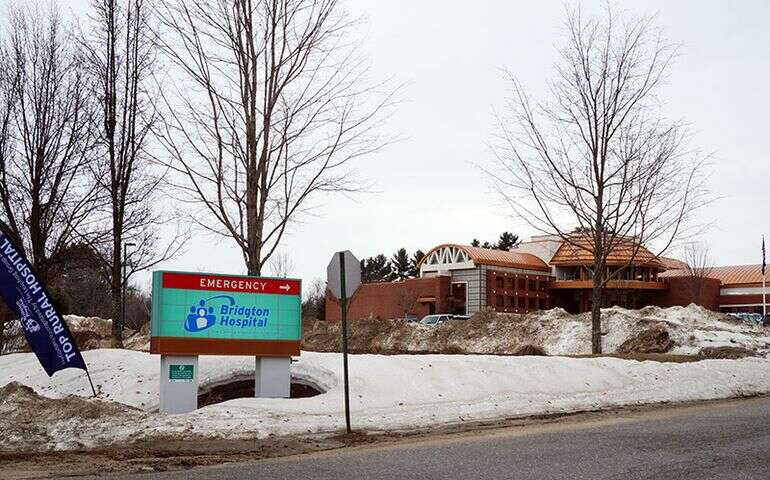
$13.5M in fed funds will support Maine's rural health system, child care providers
 COURTESY / MAINE MEDICAL PARTNERS
Maine has received CARES Act funds to support telehealth services. Seen here as a patient might see her is Megan Selvitelli of Maine Medical Partners Neurology, whose team met remotely with about 135 patients in the first 10 days of conducting telehealth visits.
COURTESY / MAINE MEDICAL PARTNERS
Maine has received CARES Act funds to support telehealth services. Seen here as a patient might see her is Megan Selvitelli of Maine Medical Partners Neurology, whose team met remotely with about 135 patients in the first 10 days of conducting telehealth visits.
Maine has received $2.5 million in CARES Act funding to support rural hospitals and increase access to telehealth, to help medical providers reach patients in underserved areas during the COVID-19 pandemic.
In addition, Maine was allocated $11 million to support access to child care for Maine’s essential workers, including health care professionals and first responders, and to offer relief for child care providers.
Rural health
The rural health care funds were awarded through the U.S. Department of Health and Human Services.
Funding will also be used to help reduce poisonings related to an increase in disinfectant and cleaner use.
“This funding provides critical support to residents of Maine’s rural communities by supporting their local hospitals and improving the accessibility of telehealth services that will allow them to receive care safely,” U.S. Sens. Susan Collins, R-Maine, and Angus King, I-Maine, said in a joint statement announcing the funding.
Under the CARES Act, Medical Care Development Inc. received $828,571 through the Telehealth Resource Centers program. The funding will allow Medical Care Development to provide expertise and technical assistance to medical professionals using telehealth technology throughout the state.
In 2019, Medical Care Development, a public health nonprofit in Augusta, was recognized with a national award by the U.S. Department of State for the group's work to eliminate malaria.
Driven by the public health crisis, telehealth services are soaring in use.
Earlier this month, King told Mainebiz that the benefits of telehealth include allowing people to visit physicians or medical practices without having to go out, and allowing them to be triaged remotely.
Also under the federal legislation, the Maine Department of Health And Human Services received $1.6 million through the Small Rural Hospital Improvement Program. Rural hospitals are given broad flexibility to use the funding for testing and laboratory services as well as the purchase of personal protective equipment.
In 2019, Maine was among 10 states nationally, and one of two in New England, recognized by the federal government for the quality of its rural hospitals.

In addition, MaineHealth received $54,456 for its poison centers program. Over the past few months, poison control centers have seen a significant uptick in calls related to cleaner and disinfectant exposure.
The funding can be used to increase outreach and education to reduce the risk of COVID-19 related poisonings and to enhance readiness and training to respond to and manage the increased calls related to COVID-19 related poisonings.
Child care
Maine received $10.9 million through the U.S. Department of Health and Human Services Administration for the Children and Families’ Child Care and Development Block Grant program. The program helps eligible low-income and working families to afford child care and supports providers in delivering it.
Under the CARES Act, workers deemed essential who are working outside the home are now temporarily eligible to receive child care assistance regardless of their income. Those workers include health care employees, first responders, emergency medical services personnel, state employees, grocery store staff, environmental services professionals and others.
Child care providers affected by the pandemic will also receive immediate assistance. Nearly 2,000 providers will receive a one-time stipend, based on their capacity and size of their current operations. Providers will also receive support to help them resume operations after the civil state of emergency is lifted.
“While people throughout Maine are staying home to prevent the spread of COVID-19, we all rely on the essential employees, from doctors and nurses to grocery store workers, state employees and others, who are reporting to work each day,” Gov. Janet Mills said in a news release. “This funding will help our essential workers care for their children and support our child care providers.”
Financial assistance on behalf of essential workers will be paid directly to child care providers.
The new federal funding builds on other steps Maine has taken to support families and child care providers in response to the pandemic, DHHS said in the release.














0 Comments